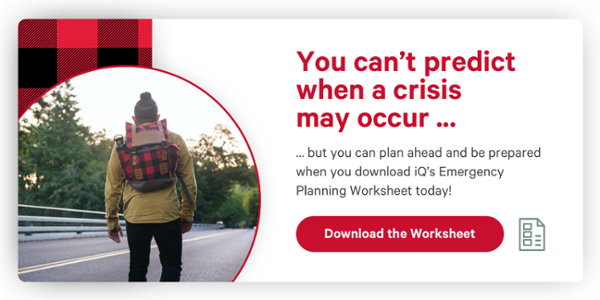
The stunning landscapes of the Pacific Northwest’s (PNW’s) lush forests come with a significant risk: wildfires. As climate change accelerates, increasing the frequency of wildfires in the region, urgent and comprehensive preparation has become a necessity.
Given the unpredictable nature of wildfire season, it’s imperative to plan ahead on all fronts—particularly financially. By taking proactive steps now, you can safeguard your assets, reduce financial strain, and secure your peace of mind.
When Is Wildfire Season?
Wildfire season in the PNW traditionally begins in late spring and can extend into early fall, with peak months in July, August, and September. During this period, the combination of dry weather, higher temperatures, and occasional strong winds creates optimal conditions for wildfires to ignite and spread rapidly.
The Impact of Climate Change
Climate change is transforming wildfire trends. With rising temperatures and extended periods of drought, wildfire season has grown beyond its traditional time frame. Fires are now starting earlier in the year and lasting longer into the fall, with increased severity leading to larger, more destructive blazes that are tougher to manage.
Building a Financial Safety Net
Wildfires can occur with minimal warning, making it crucial to have a financial safety net in place. Protect your finances by taking these essential steps: establish an emergency fund, secure important documents, and ensure you have adequate insurance coverage.
Establishing a Rainy Day Fund
Create a rainy day fund by setting aside a portion of each paycheck into a dedicated savings account. This fund will grow over time, providing you with financial stability during emergencies such as evacuations or wildfire damage.
Securing Important Documents
Keep your essential documents, including insurance policies, property deeds, and identification papers, easily accessible. Store physical copies in a fireproof safe and create secure digital backups in the cloud.
Key documents to safeguard include:
- Homeowner’s or renter’s insurance policies
- Property deeds and titles
- Birth certificates
- Passports
- Medical records and prescriptions
- Financial account information and tax documents
Reviewing and Updating Insurance Policies
Having the right insurance coverage is crucial for wildfire preparedness. Ensure your homeowner’s or renter’s and health insurance policies are up to date and specifically cover wildfire-related damages and medical needs.
To review and update your policies:
- Check coverage limits. Make sure your limits are sufficient to repair or replace your home and belongings.
- Verify wildfire coverage. Confirm your policy includes coverage for wildfire damage.
- Update personal information. Keep your contact and property details current with your insurer.
If damage occurs, report it promptly, document it with photos and lists, and submit the required forms. Stay in touch with your adjuster and keep an updated inventory of your belongings with receipts and proof of purchase.
Assembling an Emergency Kit
An emergency kit is a vital component of your wildfire preparedness plan. Stock your kit with nonperishable food items and enough water to last at least 72 hours. Include:
- Canned goods and a manual can opener
- Dried fruits and nuts
- Protein bars and energy snacks
- Bottled water (one gallon per person per day)
- Pet food and supplies if you have pets
In addition to food and water, your emergency kit should include essential tools and devices, such as:
- Flashlights with extra batteries
- Battery-operated radio for updates
- Portable phone chargers
- First aid kit
- Multi-tool or Swiss Army knife
- Whistle to signal for help
Ensure all items are in working order so that you can stay safe and informed during a wildfire.
Key Support Before and After a Wildfire
Preparing for and recovering from a wildfire can be overwhelming, but iQ Credit Union is here to help with personalized financial advice tailored to your needs. Our expert advisors offer guidance on creating effective financial strategies, ensuring you’re prepared for emergencies and can recover smoothly in their aftermath.
To support you through these challenging times, we offer specialized services:
- Emergency relief loans: Access quick and flexible emergency relief loans, which are designed to provide immediate financial relief for repairs, temporary relocation, or other urgent needs following a wildfire.
- Financial counseling: Benefit from one-on-one financial planning sessions to plan for unforeseen events and navigate the complexities of recovery. Our counselors can help you develop a financial plan, manage insurance claims, and address any other financial concerns you may face.
Plan Ahead with Our Emergency Planning Worksheet
Financial preparedness should be at the forefront of your overall safety strategy during wildfire season. By setting up an emergency fund, securing important documents, reviewing insurance policies, and assembling an emergency kit, you can safeguard your assets and reduce financial stress during emergencies.
Download our emergency planning worksheet to ensure you have all the information and supplies you need for wildfire season!

Comments